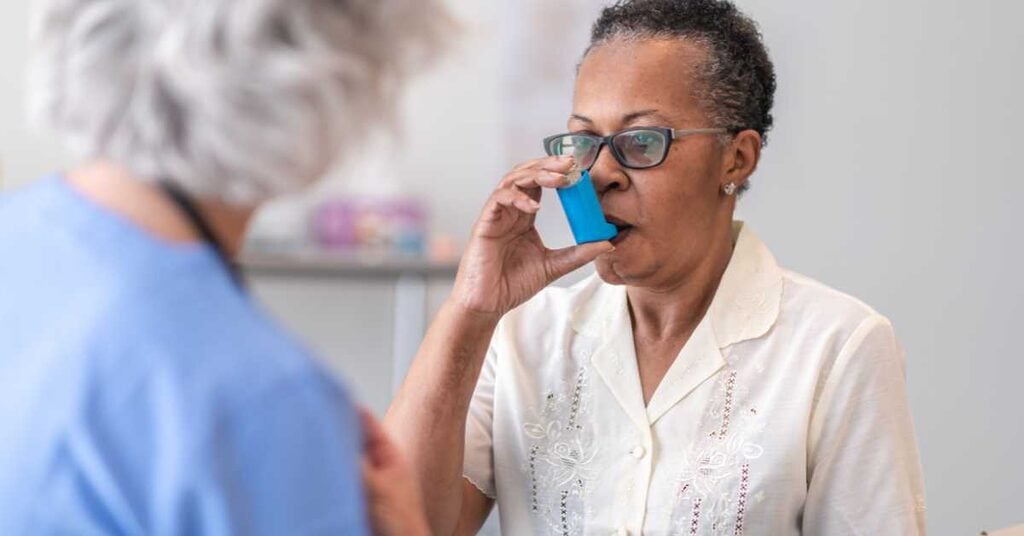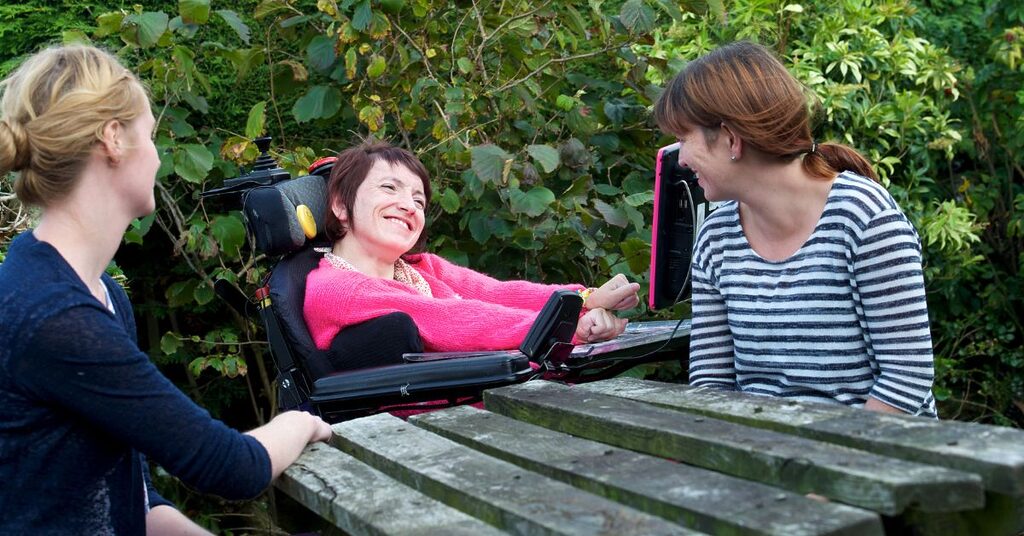12 August 2024
Reducing the Environmental Impact of Respiratory Care
Tagged by
Thanks to funding from our Climate Challenge Grants, NHS Lothian staff are reducing waste, and carbon emissions by improving the disposal of inhalers and promoting effective prescribing practices.

Respiratory disease is very common, but the treatment often increases carbon emissions. These emissions not only contribute to air pollution but can also exacerbate respiratory conditions, affecting overall health of our communities.
Jane Hopton NHS Lothian Environmental Sustainability Lead said:
The carbon footprint of respiratory disease is largely due to the current propellant gases found in some inhalers. These gases have 1,430 or 3,220 times the global warming potential of CO2 (depending on the brand of inhaler).
“This project is an important step forward as the disposal of used, unwanted, or expired inhalers reduces the carbon footprint by ensuring safe destruction of the residual propellant gases. Although dry powder inhaler devices do not contain a propellant, they are currently not recyclable due to the multiple types of plastic and components in them. Therefore, all inhalers need to be disposed of safely to reduce damage to the environment.”
Resources printed included, inhaler guidance posters for healthcare staff and educational posters to support patients checking their inhaler technique. These were distributed to staff in primary and secondary care by the Respiratory Managed Clinical Network.
The project asked participating community pharmacies to add stickers to dispensing bags containing inhalers. The stickers stated, “please return unwanted or expired inhalers to your pharmacy for environmentally safe disposal”.
In total, five community pharmacies took part in the pilot project. After 10 weeks of adding the stickers to bags, the number of inhalers returned was four times more than prior, which was a 300% increase.
The second part of the project aims to increase effective prescribing for respiratory conditions by improving access to information that supports clinical decision making and promotes good inhaler techniques. This is in recognition of the new Scottish Government quality prescribing strategy for respiratory conditions stating “The most environmentally friendly inhaler is the one that the patient can, will and does use correctly”.
Resources printed included, inhaler guidance posters for healthcare staff and educational posters to support patients checking their inhaler technique. These were distributed to staff in primary and secondary care by the Respiratory Managed Clinical Network.
Katie Johnston, Respiratory Lead Primary Care Pharmacist from NHS Lothian, said:
Lots of people use inhalers and often do not think about the environmental impact these can have.
“Community pharmacies are ideally positioned and essential to support improved respiratory care and help reduce the environmental impact of all medicines.
“Feedback regarding the resources has been very positive and the Managed Clinical Network plans to continue to develop and disseminate information to ensure inhaler waste continues to be reduced, the carbon footprint from inhalers is minimised and every patient is prescribed an inhaler device that is suitable for them.”
Jane Greenacre, Head of Programmes at NHS Lothian Charity, said:
We are pleased to support NHS Lothian staff in implementing projects like this through our Climate Challenge Grants. These grants enable staff to integrate green practices into their daily activities, helping to reduce healthcare’s environmental impact. By embracing eco-friendly initiatives, we are working towards a more sustainable healthcare system for future generations. It’s great to see the dedication from NHS Lothian staff, and we’re proud to support such impactful projects.”
